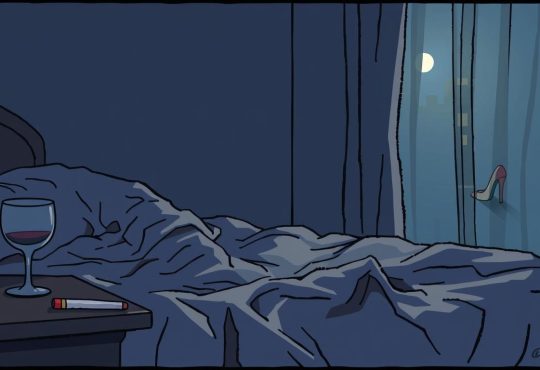
Have you ever wondered why some relationships thrive while others falter, especially later in life? Recognizing warning signs early can save you from years of emotional strain. Understanding these signals is key to building a healthy and fulfilling partnership.
Red flags are subtle or obvious behaviors that indicate potential issues in a relationship. They can range from poor communication to financial instability. Being aware of these signs helps you make informed decisions and avoid unnecessary heartache.
Loving yourself is the foundation of any successful relationship. Settling for less than you deserve can lead to dissatisfaction. Many seniors have shared their experiences, highlighting the importance of valuing personal growth and learning from past mistakes.
In this article, we’ll explore various types of red flags, including communication challenges and financial concerns. Our goal is to empower you with knowledge, helping you navigate the dating world with confidence and clarity.
On this Page:
- 1 Understanding the Challenges of Senior Dating
- 2 Inconsistent Communication: A Major Warning
- 3 Reluctance to Share Personal Information
- 4 Excessive Talk About Exes and Past Relationships
- 5 Avoiding Serious Conversations About the Future
- 6 Controlling Behavior and Jealousy in Senior Dating
- 7 Poor Financial Management as a Relationship Red Flag
- 8 Identifying “Red Flags When Dating in Your 60s”
- 9 Debunking Myths and Embracing Healthy Dating Practices
- 10 Conclusion
Understanding the Challenges of Senior Dating
Navigating relationships later in life comes with its own set of unique challenges. Many seniors face significant life changes, such as retirement, loss of a partner, or shifting family dynamics. These transitions can create emotional vulnerabilities that shape how they approach new connections.
Emotional Vulnerabilities and Life Changes
Life after 60 often involves adapting to new realities. For some, this means coping with grief or loneliness. These feelings can make it harder to open up to new people. It’s important to recognize that these emotions are normal and part of the process.
Family dynamics also play a role. Adult children or grandchildren may influence decisions about relationships. Balancing these relationships while pursuing personal happiness can be tricky. Understanding these challenges is the first step toward building a supportive partnership.
The Impact of Past Experiences
Past experiences, whether positive or negative, shape how we view new relationships. For many seniors, previous marriages or long-term partnerships leave lasting impressions. These memories can influence expectations and behaviors in new connections.
Learning from the past is crucial. It helps us identify patterns and make better choices moving forward. A secure understanding of family history and personal background can also build trust in new relationships. By acknowledging these factors, we pave the way for healthier, more fulfilling connections.
Inconsistent Communication: A Major Warning
Effective communication is the backbone of any strong relationship, but inconsistency can be a major warning sign. When messages are erratic or plans are frequently canceled, it can signal deeper issues. Recognizing these patterns early is essential for maintaining trust and emotional security.
What It Looks Like in Daily Interactions
Inconsistent communication often manifests in ways that disrupt daily life. For example, a partner might send vague texts or fail to respond for long periods. Last-minute cancellations or unexplained absences can also be a sign of disinterest or disrespect for your time.
These behaviors can leave you feeling uncertain and undervalued. Over time, they erode trust and create unnecessary tension. Addressing these issues early can prevent them from escalating into larger problems.
How It Affects Your Relationship Dynamics
Poor communication can have both short-term and long-term effects on a relationship. In the short term, it leads to misunderstandings and frustration. Over time, it can create emotional distance and weaken the bond between partners.
Underlying reasons for inconsistent communication may include preoccupation with other priorities or stray interests. Whatever the cause, it’s important to address it openly and honestly. Regular, respectful communication is key to building and maintaining trust.
By recognizing these warning signs, you can make informed decisions about your relationship. Trust your instincts and prioritize connections that foster mutual respect and understanding.
Building trust is essential in any relationship, but reluctance to share personal details can raise concerns. Openness fosters deeper connections, and avoiding such discussions might indicate hidden issues. Recognizing these signs early can help you address potential problems before they escalate.
Signs of Withholding Important Details
One clear sign is avoiding conversations about family, past relationships, or personal history. If your partner deflects questions or provides vague answers, it could signal deeper trust issues. Another indicator is inconsistency in sharing details, such as revealing some information but withholding others.
Pay attention to body language and tone. Hesitation or discomfort during discussions about personal topics might suggest unresolved concerns. These behaviors can create emotional distance and hinder the growth of a healthy connection.
Understanding the Need for Transparency
Transparency is the foundation of trust. Healthy relationships thrive when both individuals feel comfortable sharing their thoughts and experiences. Setting clear boundaries encourages honest communication and mutual respect.
If you notice reluctance, address it calmly and respectfully. Express your need for openness without confrontation. This approach fosters a safe space for both partners to share and grow together.
Remember, every individual has their own pace. Patience and understanding can help bridge gaps and build a stronger bond. By prioritizing transparency, you create a foundation for a fulfilling and lasting relationship.
Excessive Talk About Exes and Past Relationships
Why does constant talk about exes become a red flag in new relationships? While sharing past experiences can build trust, focusing too much on exes can signal unresolved issues. This behavior often leaves the current partner feeling undervalued and insecure.
When reminders of the past dominate the conversation, it may indicate emotional baggage. Studies show that 70% of individuals find excessive talk about exes unsettling. This can create a dynamic where the new partner feels compared or inadequate.
Unresolved Issues and Emotional Baggage
Frequent discussions about past relationships often stem from unresolved feelings. According to therapists, 60% of partners who compare their current relationship to an ex struggle with emotional closure. This can hinder the growth of a new connection.
Addressing these topics early is crucial. Open and honest conversations can help both partners understand each other’s needs. If unresolved issues persist, it may be a sign that the individual isn’t ready for a serious commitment.
Focusing on the Present
Instead of dwelling on the past, focus on building a positive list of qualities for your current relationship. This shift in mindset fosters a healthier connection. Encourage your partner to do the same, creating a foundation of mutual respect and understanding.
By prioritizing the present, you can nurture a relationship that thrives on trust and shared goals. Remember, every connection is unique, and the past should not define its potential.
Avoiding Serious Conversations About the Future
Planning for the future is a cornerstone of any lasting relationship, but avoiding these discussions can be a red flag. Open and honest talks about long-term goals, finances, and health are essential for building trust and alignment. When these topics are dodged, it may signal a lack of commitment or hidden concerns.
Indicators of Avoidance in Long-term Planning
One clear sign is reluctance to discuss financial planning. If your partner avoids conversations about money or deflects questions about shared expenses, it could indicate deeper issues. Another warning sign is hesitation to talk about health or retirement plans, which are critical for long-term stability.
Pay attention to how they handle discussions about relationship goals. If they seem uncomfortable or change the subject, it might suggest they’re not ready for a serious commitment. These behaviors can create uncertainty and hinder the growth of a secure partnership.
A proper long-term plan contributes to a healthy and secure relationship. Discussing goals like travel, family, or lifestyle preferences ensures both partners are aligned. Financial transparency is equally important, as it builds trust and prevents future conflicts.
Initiate these conversations early and approach them with patience. Express your needs calmly and encourage your partner to share their thoughts. By prioritizing open communication, you create a foundation for a fulfilling and lasting connection.
Trust your instincts and address any concerns promptly. A shared vision for the future strengthens your bond and ensures both partners are working toward the same goals. Remember, avoiding these discussions today can lead to bigger challenges tomorrow.
Controlling Behavior and Jealousy in Senior Dating
Healthy relationships thrive on trust and respect, but controlling behavior and jealousy can quickly undermine these foundations. These issues often start subtly, making them harder to recognize at first. Understanding the signs and addressing them early is key to maintaining a balanced and fulfilling connection.
Subtle Signs of Possessiveness
Controlling behavior can manifest in small, seemingly harmless ways. For example, a partner might insist on knowing your schedule or demand constant updates on your whereabouts. Over time, these actions can escalate, leading to a lack of personal freedom.
Jealousy often accompanies possessiveness. A partner might express discomfort when you spend time with friends or family. This can create tension and isolate you from your support network. Recognizing these patterns early helps prevent them from becoming more serious issues.
The Importance of Maintaining Independence
Maintaining independence is crucial at any stage of a relationship. A healthy partnership allows both individuals to pursue their interests and maintain friendships. If your partner discourages this, it may indicate a lack of respect for your individuality.
Setting boundaries is a practical way to preserve your independence. Communicate your needs clearly and ensure your partner understands the importance of personal space. This approach fosters mutual respect and strengthens the relationship.
Real-life examples show how controlling tendencies can develop over time. One senior shared how their partner gradually restricted their social interactions, leading to feelings of isolation. Addressing these behaviors early can prevent long-term emotional harm.
By staying aware of these red flags, you can protect your well-being and build a healthier connection. Trust your instincts and prioritize relationships that encourage growth and independence.
Poor Financial Management as a Relationship Red Flag
Money matters can make or break a relationship, especially when financial habits are misaligned. A healthy relationship thrives on trust, and financial transparency plays a key role in building that trust. When one partner hides debts or spends recklessly, it can create long-term problems that strain the connection.
Hidden debts and reckless spending are common warning signs. For example, if your partner avoids discussing finances or makes large purchases without consulting you, it could indicate deeper issues. Studies show that 60% of divorces are caused by financial problems, highlighting the importance of addressing these concerns early.
Hidden Debt and Reckless Spending Habits
Financial secrecy can erode trust and create tension. When one partner hides significant debts or fails to meet financial obligations, it can lead to feelings of betrayal. Reckless spending, such as impulsive purchases or living beyond one’s means, can also destabilize a relationship.
Open and honest discussions about money are essential. Couples who regularly talk about their financial goals and challenges are more likely to build a strong foundation. For instance, 94% of married couples with joint savings accounts report the highest marital satisfaction, showing the value of shared financial planning.
Addressing financial red flags early can prevent bigger problems down the road. If you notice signs of poor financial management, approach the conversation with empathy and understanding. Offer advice on creating a budget or seeking professional help to manage debts effectively.
By prioritizing financial transparency, you can strengthen your connection and ensure long-term success. A proactive approach to money matters not only solves immediate problems but also fosters a healthier, more secure partnership.
Identifying “Red Flags When Dating in Your 60s”
Recognizing early signs of trouble can save you from emotional strain in relationships. As we age, our priorities and expectations evolve, making it essential to stay alert for behaviors that might indicate deeper issues. By understanding these warning signs, you can build a connection that’s both healthy and fulfilling.
Key Warning Signs to Look For
Inconsistent communication is a common red flag. If your partner frequently cancels plans or fails to respond, it may signal a lack of commitment. Over time, this behavior can erode trust and create emotional distance.
Reluctance to share personal information is another concern. Transparency is vital for building trust, and avoiding discussions about family or past relationships might indicate hidden issues. Pay attention to body language and tone during these conversations.
Excessive talk about exes can also be a warning sign. While sharing past experiences is normal, focusing too much on previous relationships may suggest unresolved feelings. This can leave you feeling undervalued or insecure.
Financial instability is another red flag. Hidden debts or reckless spending habits can strain a relationship. Open discussions about money are crucial for building trust and ensuring long-term stability.
Controlling behavior and jealousy are serious concerns. If your partner discourages independence or isolates you from friends and family, it’s a sign of possessiveness. Healthy relationships thrive on mutual respect and trust.
Over the course of a year, these behaviors can become more pronounced. Pay attention to both overt and subtle signs. Regular reassessments of the relationship can help you address issues early and maintain a strong connection.
Here’s a quick checklist to keep track of potential red flags:
- Inconsistent communication or frequent cancellations
- Reluctance to share personal details or family history
- Excessive focus on past relationships or exes
- Financial secrecy or reckless spending habits
- Controlling behavior or jealousy
Staying informed and trusting your instincts are key to navigating senior dating. By prioritizing your interest in personal well-being, you can build a relationship that’s both meaningful and secure.
Debunking Myths and Embracing Healthy Dating Practices
Dating later in life doesn’t have to be daunting; it can be an opportunity for growth and connection. Many myths surround relationships at this stage, but by focusing on what truly matters, we can build meaningful and fulfilling partnerships. Let’s explore how to shift from fear to a love-based approach and embrace healthier practices.
Recognizing What Truly Matters in a Partner
At any age, genuine connection is more important than superficial qualities. Instead of focusing on a checklist of traits, consider the values and emotional compatibility that make a relationship thrive. Shared goals, mutual respect, and open communication are key to building a lasting bond.
Self-worth plays a significant role in recognizing what matters. When we value ourselves, we’re more likely to seek partners who respect and appreciate us. Studies show that self-esteem tends to peak around the age of 60, which can positively influence our dating experiences.
Here’s a tip for seniors: focus on qualities like kindness, honesty, and a shared sense of humor. These traits often lead to deeper and more satisfying connections than physical appearance or material success.
Shifting from Fear to a Love-Based Approach
Fear-based thinking can hold us back from finding love. Concerns about rejection or past failures may prevent us from taking risks. However, shifting to a love-based approach allows us to embrace vulnerability and openness.
Health and connection are essential in this shift. Engaging in activities that promote physical and emotional well-being can boost confidence and attract like-minded partners. For example, mindfulness and physical activity have been shown to improve mood and body appreciation.
Another tip for seniors is to focus on the present rather than dwelling on the past. By letting go of old fears and embracing new opportunities, we can create a more rewarding dating experience. Honest communication about insecurities can also strengthen relationships, fostering trust and understanding.
By debunking myths and focusing on what truly matters, we can build healthier and more fulfilling relationships. Let’s embrace this stage of life with confidence and an open heart.
Conclusion
Building a meaningful connection later in life requires awareness and self-assurance. Throughout this article, we’ve explored key warning signs, from inconsistent communication to financial instability. Every thing matters in fostering a secure and respectful relationship, including transparency and trust.
It’s essential to balance recognizing potential issues with embracing healthy practices. Open conversations about personal history, financial goals, and even aspects like sex and intimacy can strengthen your bond. Trust your instincts and take proactive steps to protect your well-being.
Remember, every senior deserves a partnership built on mutual respect and genuine connection. By staying informed and confident, you can navigate the dating landscape with clarity and empowerment. Let this guide inspire you to create a relationship that thrives on understanding and shared values.










